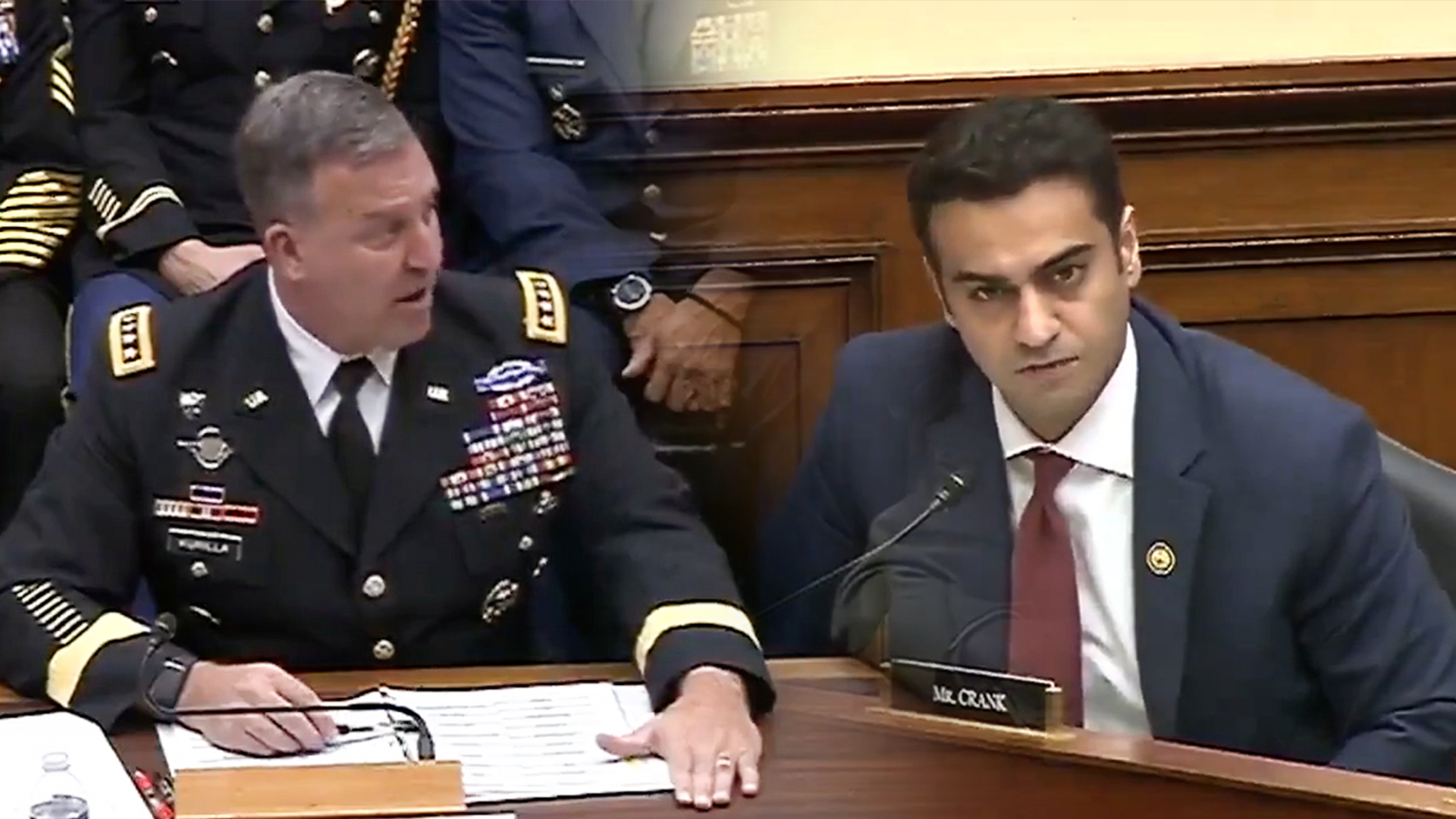Congressman Presses U.S. CENTCOM Commander on Kurdistan, Iraq, and Syria During Anti-ISIS Meeting in Madrid
“Why are we subsidizing Iraq currently when it's withholding public salaries and military equipment from our Kurdish allies up north?” U.S. Congressman Abe Hamadeh asked General Michael Kurilla.

ERBIL (Kurdistan24) — Senior diplomatic officials from across the globe gathered in Madrid on Tuesday for a high-level session of the Small Group of the Global Coalition to Defeat ISIS. The summit, hosted by the Kingdom of Spain, brought together leading voices on international security, counterterrorism, and regional stability. Among the key moments of the meeting was a direct exchange between U.S. Congressman Abe Hamadeh and General Michael Kurilla, Commander of U.S. Central Command (CENTCOM), focused on the complex dynamics in Iraq, the Kurdistan Region, and Syria.
During the public session, Representative Hamadeh, who serves Arizona’s 8th Congressional District, raised pointed questions about Washington’s military and financial support to Baghdad amid ongoing tensions with the Kurdistan Region. “Why are we subsidizing Iraq currently when it's withholding public salaries and military equipment from our Kurdish allies up north?” he asked.
General Kurilla acknowledged the friction but emphasized that the U.S. continues to ensure that the Kurdistan Region receives the support it needs. “They have challenges every now and then. We end up working through them. They end up getting their salaries. They end up getting the equipment,” he said. “There are always small frictions that we have to work through, but they are getting what they need.”
Turning to Iran’s influence, Congressman Hamadeh questioned whether Tehran’s footprint inside Iraq is expanding. General Kurilla responded that while Iran is attempting to tighten its grip, the Iraqi government remains resistant to becoming subordinate to Tehran. “I think Iraq is a sovereign nation, and they don't want to be a vassal state of Iran,” Kurilla stated.
Pressed further on Iranian-backed militias operating in Iraq—including those involved in the reported detention of Elizabeth Tarkov—General Kurilla admitted the situation is “a challenge because it's their next-door neighbor,” reflecting the entrenched nature of regional geopolitics.
🔶Senior diplomatic officials convened in Madrid for a high-level meeting of the Global Coalition to Defeat ISIS, hosted by the Kingdom of Spain, where U.S. Congressman Abe Hamadeh posed critical questions to CENTCOM Commander General Michael Kurilla:
— Kurdistan 24 English (@K24English) June 11, 2025
🔸Hamadeh asked why the… pic.twitter.com/ik91mPBGni
On Syria, the discussion turned to post-conflict stabilization and integration efforts following the Assad regime’s decades-long rule and the territorial defeat of ISIS. Congressman Hamadeh praised the U.S. Ambassador to Türkiye and Special Envoy for Syria, Thomas Barrack, for his active diplomacy, including reported shuttle diplomacy between Ankara and Damascus.
Hamadeh asked Kurilla about the integration of Syrian Kurdish forces with government forces, to which the General responded positively. “It’s actually going well right now,” he said. “There are some sticking points, but what's happening is you have the Syrian Kurds talking directly to al-Sharaa, and the Syrian government. Turkey has played a positive role in that as well.”
When asked whether future integration might include other minority groups such as the Druze, Christians, or Alawites, Kurilla emphasized the U.S. priority in continuing to support its existing partners. “Right now, we're focused on our partner up in the northeast, and that’s the Kurds,” he affirmed.
The exchange highlighted the enduring complexity of the U.S. role in the Middle East—balancing strategic partnerships, managing regional rivalries, and supporting stabilization and counterterrorism efforts in a volatile post-ISIS landscape.
🔷During the Global Coalition to Defeat ISIS meeting in Madrid, Congressman Abe Hamadeh raised key questions on Syria’s post-conflict future:
— Kurdistan 24 English (@K24English) June 11, 2025
🔹He commended U.S. Special Envoy Thomas Barrack’s diplomatic efforts, including active engagement between Ankara and Damascus.… pic.twitter.com/xH2mTWPFZ9